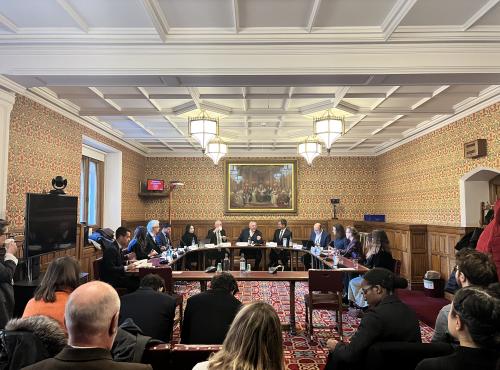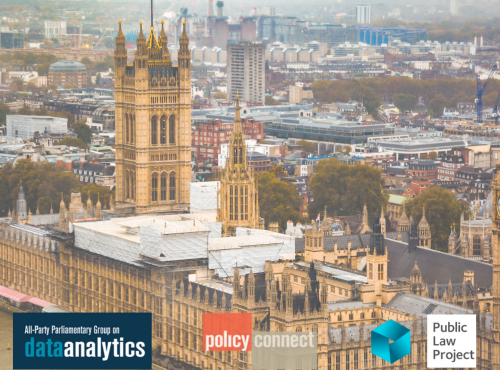The Case for a Data Code of Ethics
The APPG for Data Analytics is delighted to host a Parliamentary panel discussion into the development of ethical codes of practice and how organisations make use of data and data-driven technologies.
Hosted by APGDA Vice-Chair, Darren Jones MP, and bringing together a range of organisations from a range of sectors, including the Market Research Society, ACCA and the Data and Marketing Association. The panel, and members of the audience consider three key questions:
- How can the collection of data be better optimised and shared by those that collect it?
- In what ways is data collected by organisations, and what are the key benefits that industry organisations, sector bodies and the wider economy that result from its collection?
- How can organisations use data to lead by example for the future and to produce better policy and business outcomes?
The past decade has seen an exponential rise in volume and complexity of data being used by organisations across the private and public sectors. As the adoption of data related technologies increases, these bodies face new challenges in how they regulate the use of these technologies in a way that complies with the evolving legal structures, whilst still fostering a climate of innovation. Owing to the range of domestic and international regulatory frameworks, even the most well-intentioned of professionals can be assumed to know how to act in ways that are fully compliant with the law. As a result of this, many organisations are developing individual Data Codes of Practice that draw upon the principles set down by the Data Protection Act and GDPR.
There are also changes in how such codes of conduct are being developed within Government. In June 2018, the Department for Digital, Culture, Media and Sport launched the Data Ethics Framework, aimed at disseminating a culture of best practice across the public sector. This builds upon the core values of the Civil Service Code - integrity, honesty, objectivity and impartiality - to encourage ethical data use to build better services and inform policy.
The framework specifically aims to set out:
- Policy or operational professionals understand the uses and limits of data science, define ethics-related requirements, and develop context and domain-specific questions when planning a project or writing a tender
- Data practitioners ensure that they have considered policy and subject matter when designing data science approaches, and develop questions around project-specific requirements
- Information technology providers better understand the core ethical expectations for public sector data science projects, and to tailor their offerings appropriately
The matters arising from this discussion will feed into a brief term paper to be circulated amongst participants, and draw upon the wider work of the APGDA in promoting the ethical use of data across the British economy.
To attend, please RSVP at the following link.





